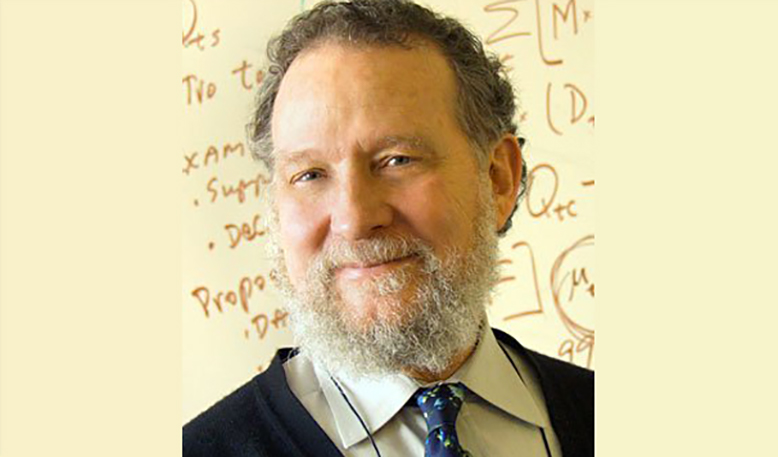Welcome to our special section, Thrive on Campus, devoted to covering the urgent issue of mental health among college and university students from all angles. If you are a college student, we invite you to apply to be an Editor-at-Large, or to simply contribute (please tag your pieces ThriveOnCampus). We welcome faculty, clinicians, and graduates to contribute as well. Read more here.
Mental illness may impact academic performance in many ways. Accordingly, students with a mental illness may be eligible for academic accommodations. Appropriate accommodations such as additional time to complete exams and assignments may greatly impact academic performance by compensating for challenges imposed by a condition.
Accommodations Explained
Mental illness, which includes addiction to drugs or alcohol, is a disability pursuant to the American with Disabilities Act (“ADA”). Under Section 504 of the Rehabilitation Act and Title II and III of the ADA, most public and private colleges and universities must provide equal access to postsecondary education for students with disabilities. Compliance with the Act’s provisions is overseen by a College’s Accommodations and Disabilities Office (“ADO”), Office of Disabilities Services, or Accessibility Office. A student may independently contact the office or be referred to it. Academic advisors and counseling offices should be required to make this referral where it is clear that a student may benefit from additional support.
Reasonable accommodations or “appropriate” or “effective” academic adjustments should be individually designed based on disability and need, but may include note takers, extra time to complete assignments, and extra exam time. Boston University’s Center for Psychiatric Rehabilitation provides a good overview of accommodations. These accommodations can help “level the playing field” for people with disabilities. However, instructors are not required to lower or substantially modify core requirements.
To be eligible for academic accommodations, you must inform your ADO that you have a disability and need accommodations. You must comply with reasonable procedures set by your ADO’s office. “Documentation must typically be prepared by a qualified health care provider and include, a diagnosis of your current disability, as well as supporting information, such as the date of the diagnosis, how that diagnosis was reached, and the credentials of the diagnosing professional; information on how your disability affects a major life activity; and information on how the disability affects your academic performance. The documentation should provide enough information for you and your school to decide what is an appropriate academic adjustment.” Documentation may need to be reviewed from time-to-time e.g. every semester. Online sources of information may be helpful in understanding requirements. Students should submit a request for accommodations as soon as possible as documentation and some accommodations may take several weeks to obtain. In some cases, it might be helpful to speak to professors about which accommodations best suit class requirements. However, you are not required to disclose specific details about your disability.
Academic skill development may be an effective substitute for accommodations. The critical skills are organization, time management and prioritization, note taking and problem solving. Broadly skills include good concentration, motivation and self-drive, independent learning, and asking for help. For assignment completion and test taking, good reading, writing, and analytical skills are invaluable. Good test taking techniques are essential – it can be helpful to know the format of tests in advance such as multiple choice or essay. For direct class participation, listening, communication and presentation skills are very helpful. Self-care strategies may help you apply these skills more effectively.
Accommodations can help many people, but they should be pursued only after careful consideration of an individual’s specific situation and needs. Extending individual accommodations should be done judiciously and responsibly because they pose potential risks. Students may come to depend on them rather than learn and develop effective coping skills that might better serve them in the long run. Such accommodations may also underestimate a student’s talents and strengths and the opportunity to build up resiliency. Instilling self-confidence may be more valuable than accommodations. Academic accommodations might serve to unduly overprotect some students.
Professors and instructors are at the frontlines to identify and impact student mental health. The following are practices they can employ to help accomplish this.
Offering accommodations shouldn’t have to a matter with complying with rules and regulations. It requires professors viewing their role beyond that strictly of instructor. I offer an example which has special meaning to me.
Professor Kleindorfer’s Example
Professor Kleindorfer was my favorite professor in my MBA program at Wharton. In fact, he was unlike any other teacher or professor I ever met. I graduated from Wharton in 2001, but I still think of him fondly. Sadly, he passed away in 2012 while I was in the depths of my mental illness. I wished that he could have seen me in recovery. I think he would have liked the place that I am at. From time to time, I wonder what advice he would have given me in these days.
He was kind, caring, empathetic, and compassionate. He was brilliant, a leader in his field of operations management. He published many books and peer reviewed journal articles, received many grants, was an in-demand speaker and received countless accolades, but he was first and foremost a wonderful professor.
He always treated me as a human being — not a paper to be graded, an exam to be marked, nor a dot on grading curve. He knew that I was struggling. He called me to his office. He asked me if I was ok. He knew the answer. He saw that I was uncomfortable, holding back the tears. He didn’t ask me to explain it. He gave me academic accommodations without me having to ask for them. He wasn’t forced to do so; he did so because he cared. He never gave me less work. He upheld educational standards and ensured fairness among all students. He just allowed me extra time to complete my assignments, to write a paper instead of an exam, to compensate for the additional challenges imposed by my mental illness. He’d encourage me to focus on what I could do and not what I could not do. His was a strengths-based approach.
I’d drop by his office unannounced to ask him about questions on assignments, but more so to see his ever smiling, sunny disposition. He never complained. He was never judgmental. He encouraged me. He instilled confidence in me. His confidence gave me strength. Consequently, despite the fact that I was highly symptomatic, I worked harder, I tried more. Because he cared, I wanted to show him my gratitude as well by doing well. I ended up doing well not only in his course, but in my others too, in classes where I did not receive accommodations. He positively and broadly impacted my academic performance. He positively impacted my mental health. He put me at ease that I would not have to drop his class, I would not have to drop out, because I knew he was watching over me.
More importantly, he became my great teacher of life. He assured me that there was indeed a life beyond Wharton and that Wharton would not be the big determinant in my life. He assured me that what I was experiencing was temporary, and it was. He reinforced that there were greater things ahead for me, that I would be happy again. I was never more moved nor more impacted by a professor than I was by Professor Kleindorfer.
I strongly believe that there is no person on-campus who can be as influential in a student’s academic life, mental health, and life as a caring professor. I don’t know if I would have graduated from Wharton without his support. The last thing I remember of him is the huge hug he gave me just days before graduation. I could tell that he was proud of me, and that meant a lot to me and still does. Colleges need more Professor Kleindorfers. I believe the epidemic of academic stress and emotional distress currently faced by young college students would be far diminished.
Subscribe here for all the latest news on how you can keep Thriving.
More on Mental Health on Campus:
What Campus Mental Health Centers Are Doing to Keep Up With Student Need
If You’re a Student Who’s Struggling With Mental Health, These 7 Tips Will Help
The Hidden Stress of RAs in the Student Mental Health Crisis


